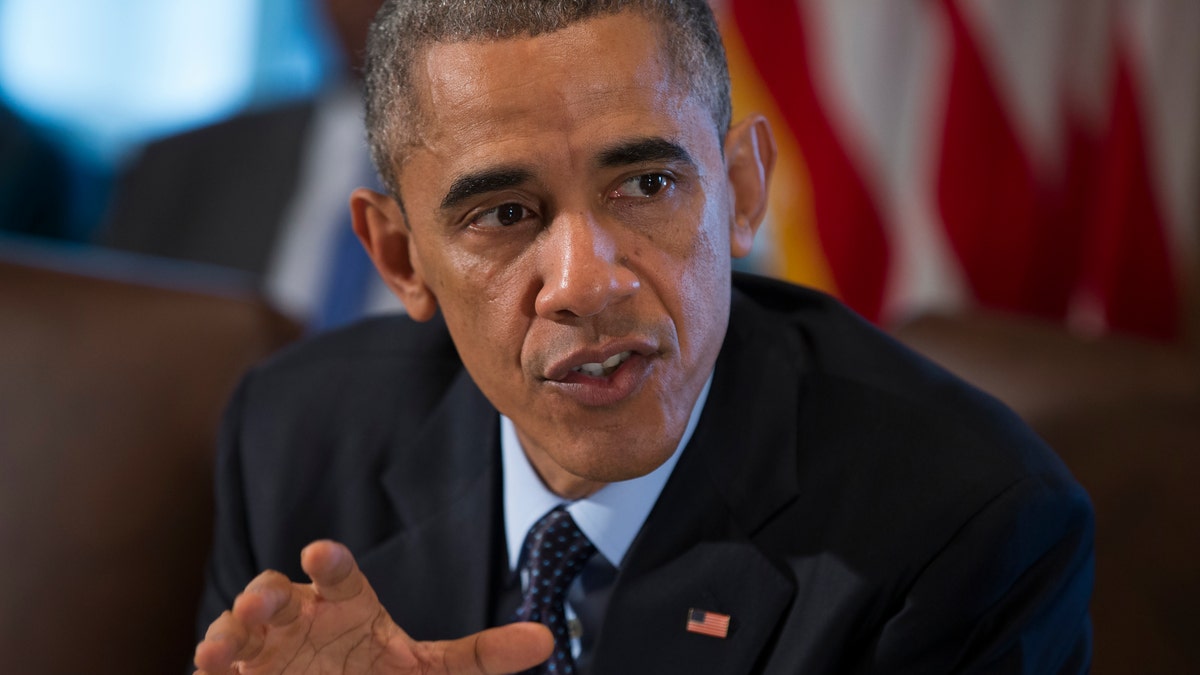
President Barack Obama speaks to the media before a meeting with his cabinet members in the White House Cabinet Room in Washington, Friday, Nov. 7, 2014. (AP Photo/Evan Vucci) (AP2014)
As Congressional leaders come together at the White House Friday to meet with President Obama there are two questions on everyone’s mind.
First, will presumed Senate Majority Leader Mitch McConnell and President Obama be able to maintain the tone of conciliation and bipartisanship that characterized yesterday’s press conferences?
And second, will the president be serving Kentucky bourbon?
Drinks aside, there is a tough road ahead for both the Republicans and Democrats. Both McConnell and Obama acknowledged earlier this week that there were areas where they could foresee compromising with one another, and others where there is no common ground to be found.
[pullquote]
For his part, McConnell suggested that he could work with the president on energy issues and corporate tax reform – two areas where I do believe we could see progress. However, he also made clear that while he wouldn’t seek to repeal ObamaCare fully, he wants to do away with the medical device tax and the individual mandate. Both of these ideas will be non-starters in the White House – and McConnell knows it.
President Obama was more opaque about where he sees the potential to work with Republican leadership, even though he was clear that it was his priority to make sure that the government keeps working during his final two years in office.
I believe we will see a meeting of the minds on the budget – McConnell also promised there wouldn’t be another government shutdown – and on energy issues. It remains to be seen whether the president is seriously open to any changes to his signature health care law, or to immigration reform that meets Republican concerns about securing the border and the 11 million illegal immigrants already in the country.
But more importantly than any specific issue, the legacy of Obama’s presidency is very much tied to whether he will work with Republicans in these next two years.
A president is never irrelevant simply due to the power of the office, but Obama does, in many ways, have the opportunity to recreate himself as a pragmatic, conciliatory and compromising president after years of partisan politics and disinterest in governing with the legislature.
To be sure, the president has accomplished a great deal on social issues. He will always be remembered for ObamaCare as well as key pieces of legislation like the Equal Pay Act and his support for gay marriage and women’s rights .
Despite these accomplishments – and I do believe them to be serious accomplishments – his reputation is badly damaged at this point. There is little-to-no faith in his ability or interest in working with others and after the Democrats’ rout on Tuesday, most assume that he will be reaching for his veto pen more often than not.
This would be the wrong approach on two levels. First, it would mean that government will continue to get nothing done. That’s a losing scenario for both parties and the American people.
Second, it would indicate that Obama has not learned the lesson of this election, namely that Americans don’t feel that he is responsive to their needs and wants, chief among them that Washington legislators work together.
In a recent WSJ/NBC News poll, 50% of Americans said they would rather a candidate “who will make compromises to gain consensus on legislation,” up from 34% at the 2010 midterms.
That says it all. And if Obama is to make good on his statement Wednesday to the one third of Americans who voted and the two thirds who didn’t that he “heard them,” then he’s got to take compromising with Republicans very seriously.
In many ways, his legacy depends on it.
